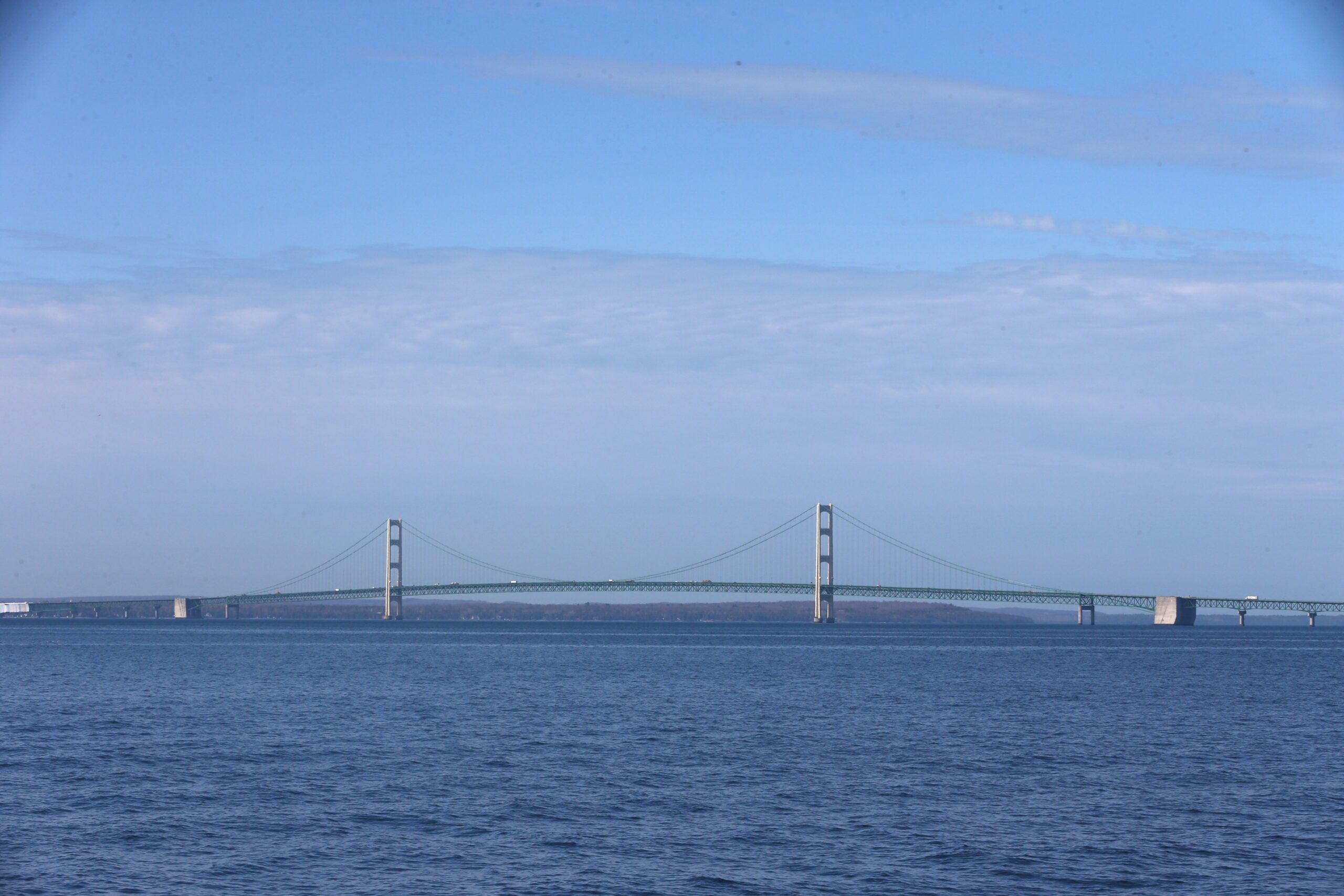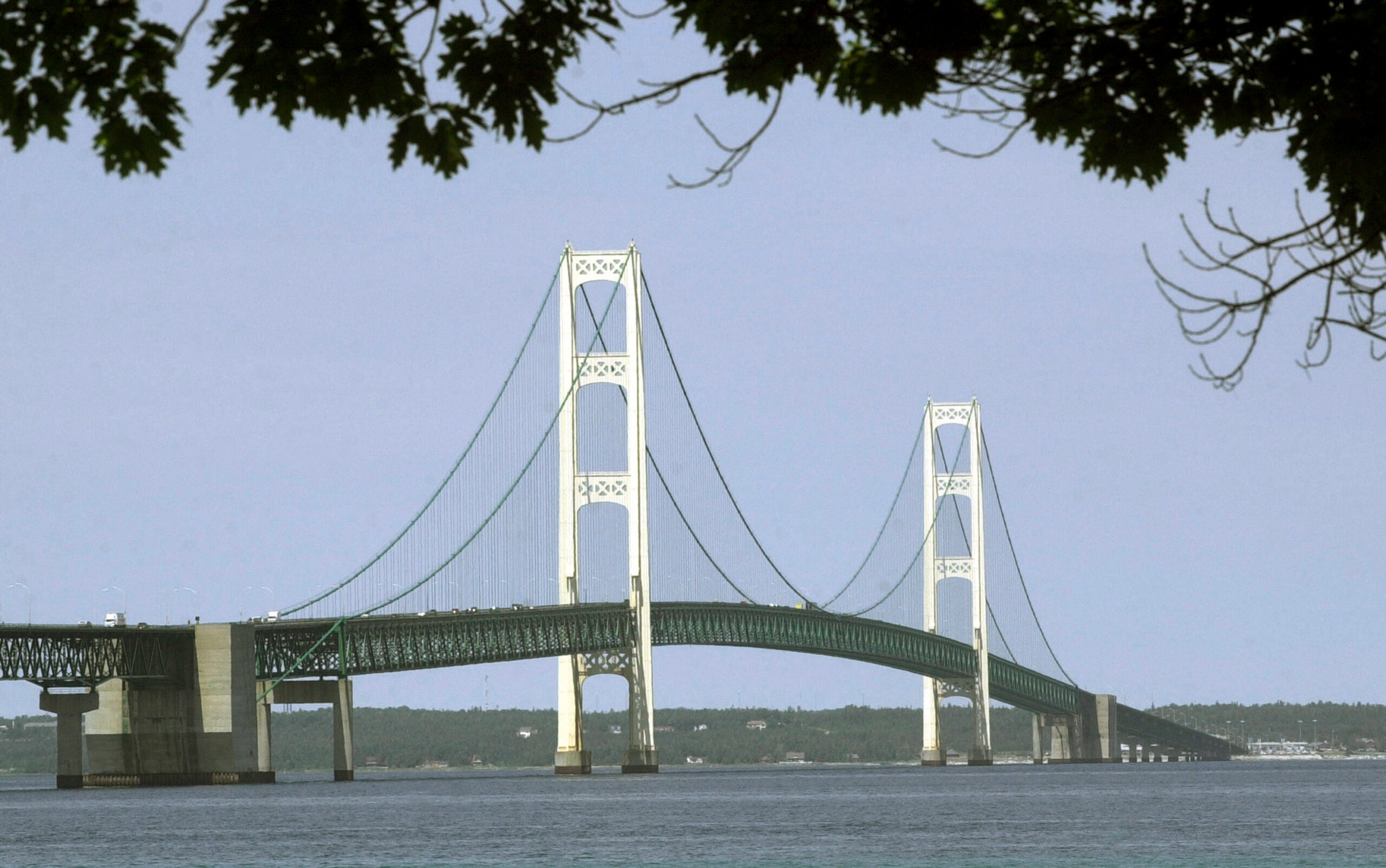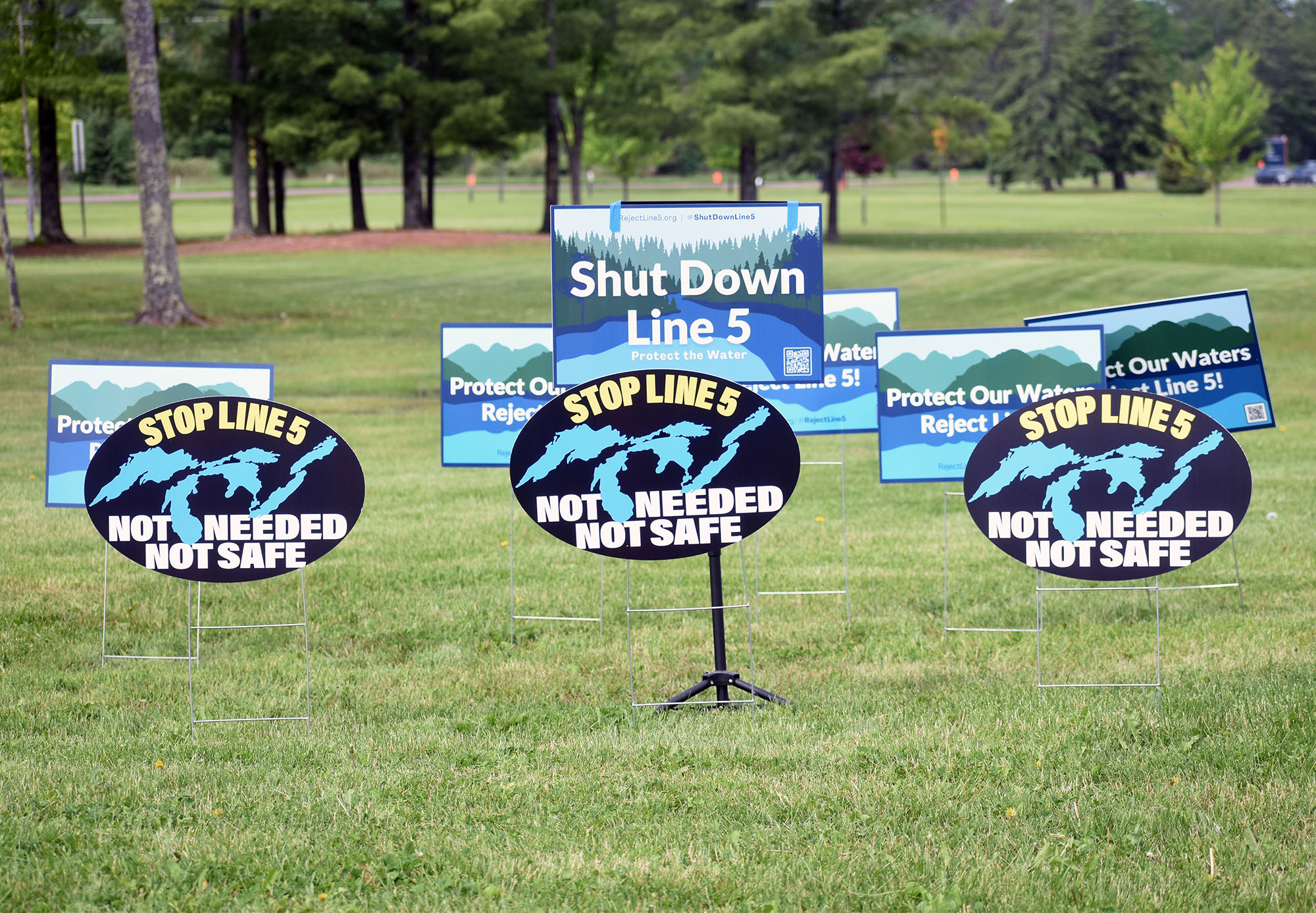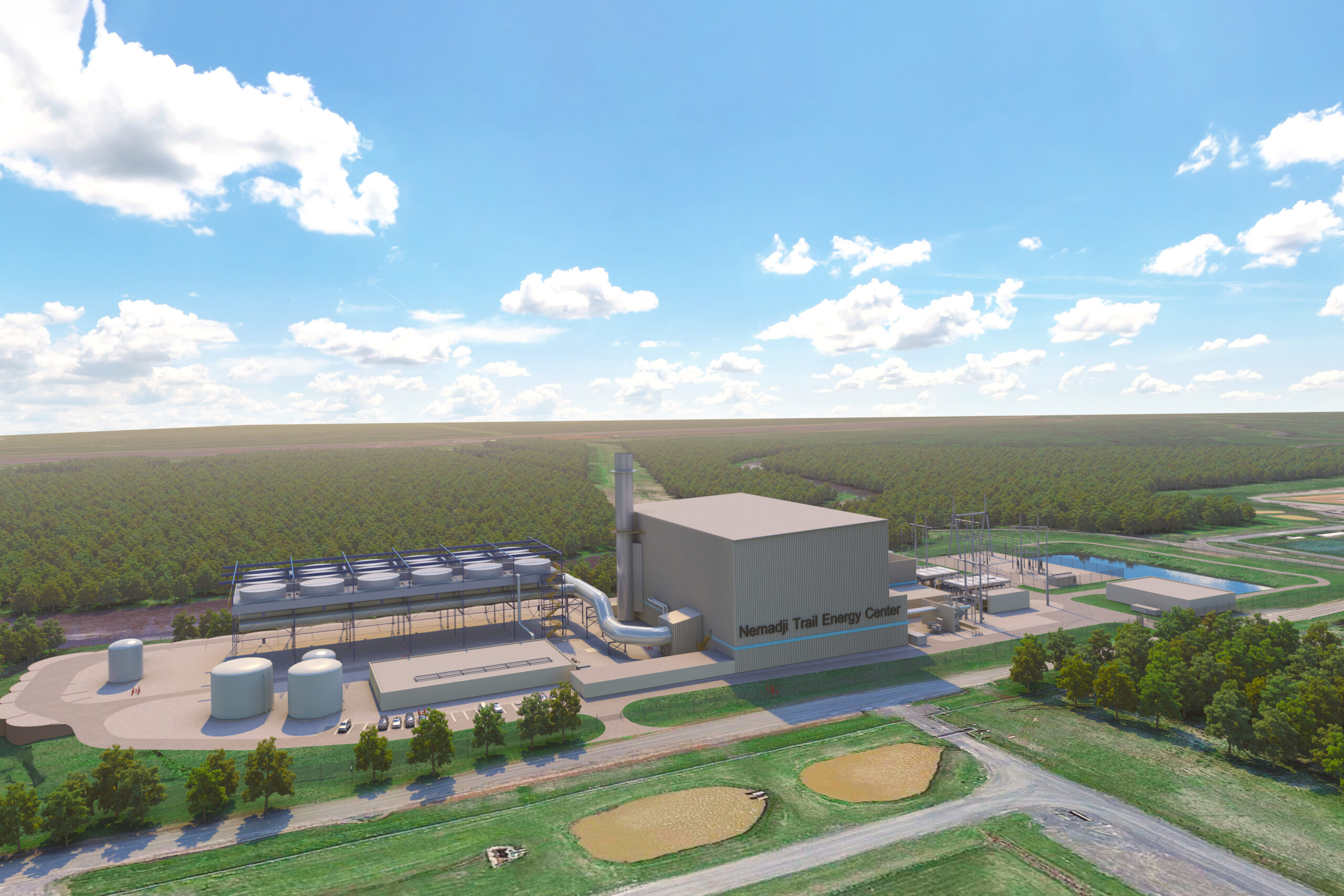Permits for hundreds of energy projects may be fast-tracked by the U.S. Army Corps of Engineers under the Trump administration, including plans for a pipeline project in the Great Lakes and a fossil fuel plant in Superior.
The Army Corps designated the projects as eligible to receive an emergency permit following President Donald Trump’s executive order that declared a national energy emergency. They include Canadian energy firm Enbridge’s proposal to build a $750 million tunnel to house Line 5 in the Straits of Mackinac, which connects Lakes Michigan and Huron. A roughly $1 billion gas-fired power plant in Superior proposed by several utilities is also on the list.
The Army Corps is reviewing federal permits for both projects under the Clean Water Act and River and Harbors Act. An Army Corps spokesperson said the agency is reviewing permit applications in relation to Trump’s executive order. The agency said Thursday that it’s already revising its list of projects eligible for an emergency permit, raising questions as to which ones will remain.
The agency has previously fast-tracked permits in emergencies, such as natural disasters. Federal regulations say the Army Corps can expedite permits if it would create “an unacceptable hazard to life, a significant loss of property, or an immediate, unforeseen, and significant economic hardship” to follow the agency’s standard process.
Beth Wallace with the National Wildlife Federation said in a virtual briefing Wednesday the fast-track plan is part of an effort to circumvent the permitting process.
“We are urging members of Congress to not allow permit rubber-stamping or sidestepping to expedite the interests of Enbridge in this case and to, first and foremost, protect the interests of people and wildlife in the Great Lakes,” said Wallace, the group’s Great Lakes climate and energy director.
Enbridge’s Line 5 runs 645 miles and carries up to 23 million gallons of oil per day from Superior to Sarnia, Ontario. In a statement, Enbridge spokesperson Juli Kellner noted the company first applied for a permit with the Army Corps in 2020 for the proposed tunnel, calling it critical energy infrastructure. The project aims to reduce the risk of spills in a 4-mile span of the 72 year-old Line 5, which has been damaged by anchor strikes in recent years.
“However, after nearly five years, the project still awaits action by the U.S. Army Corps of Engineers on an environmental impact statement and a permitting decision,” Kellner said.
Michigan officials have granted approvals for the project.
Environmental groups and tribes are challenging approval of the tunnel project. The company is also locked in legal battles with the state of Michigan and the Bad River Band of Lake Superior Chippewa over shutting down and removing Line 5 from the bottom of the Great Lakes and the tribe’s lands in northern Wisconsin.
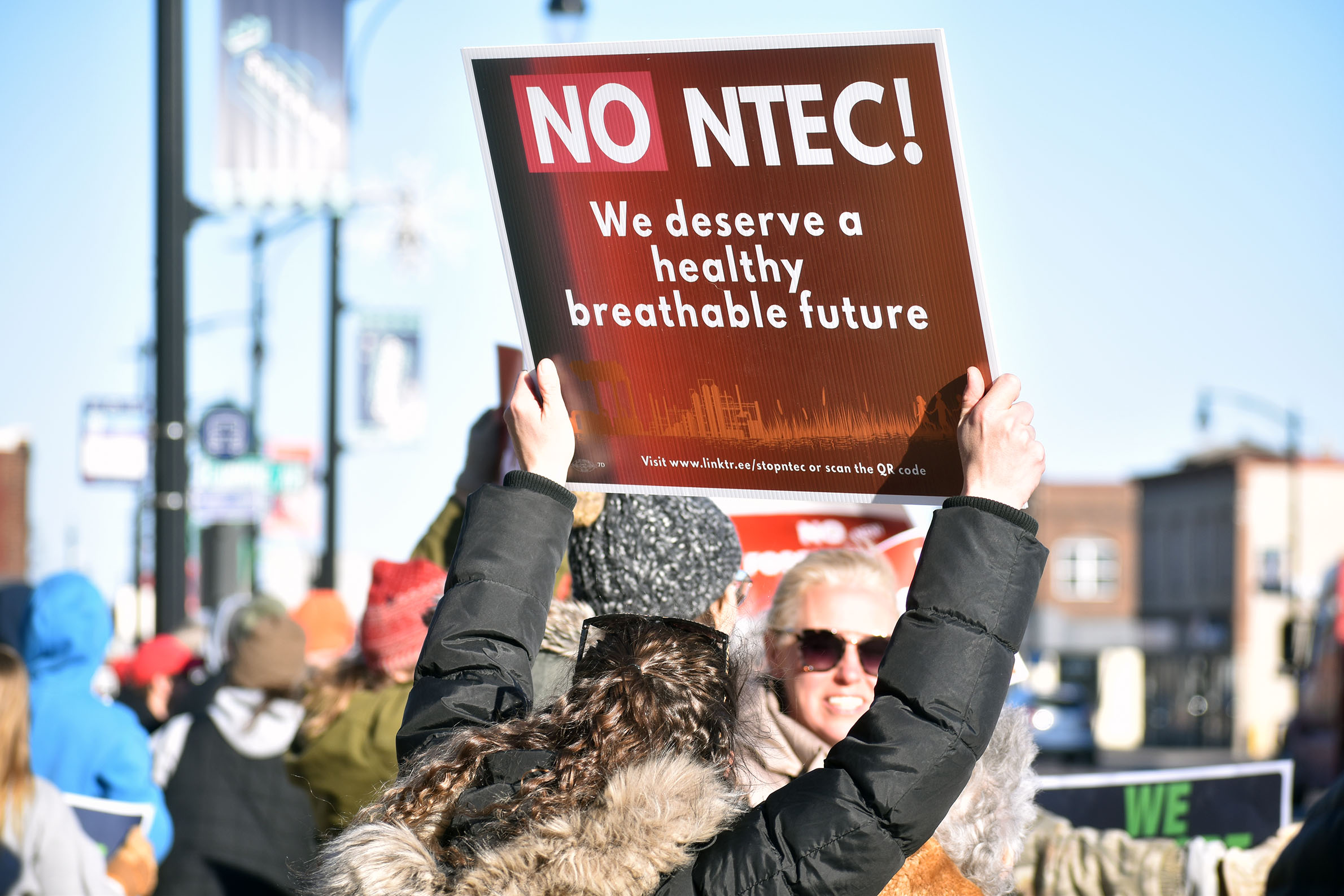
Stay informed on the latest news
Sign up for WPR’s email newsletter.
Contested power plant in Superior among eligible projects
Elsewhere in northern Wisconsin, the emergency permit designation could affect plans to build a 625-megawatt natural gas-fired plant in Superior. The owners of the project include La Crosse-based Dairyland Power Cooperative, Minnesota Power in Duluth and Basin Electric Power Cooperative in North Dakota. They want to build the Nemadji Trail Energy Center, or NTEC, as they shift away from coal and invest in renewable energy.
“It really is not much of a surprise, but that doesn’t mean that this is anywhere near an approved project,” Superior Mayor Jim Paine said. “This project still has insurmountable hurdles.”
The Superior City Council has denied local approvals for the project, and utilities still need to reapply for a state air permit. Environmental groups Clean Wisconsin and the Sierra Club have also asked the Wisconsin Supreme Court to hear their case challenging utility regulators’ decision to approve the plant’s construction.
Clean Wisconsin spokesperson Amy Barrilleaux disputed Trump’s claims the plan would unleash American energy.
“What we’re really going to be doing is unleashing the worst impacts of climate change and air pollution in communities all across this country,” Barrilleaux said.
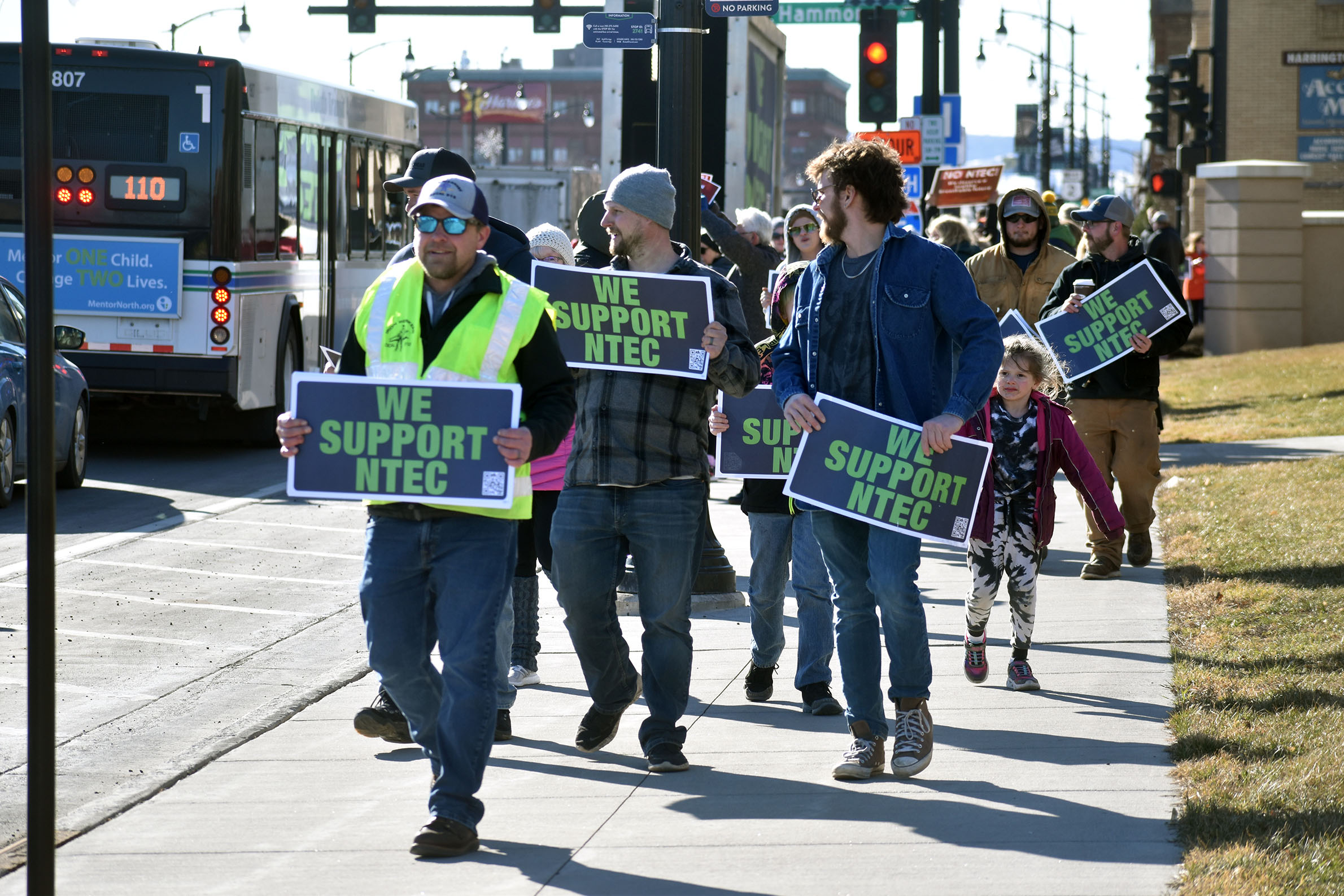
Environmental groups point out the plant would impact around 55 acres of wetlands and produce nearly 3 million tons of greenhouse gas emissions each year.
The federal Rural Utilities Service has said the plant would also reduce emissions in the region by about 800,000 tons each year by displacing coal plants.
Lake Superior tribes have also raised concerns about the project’s effects on treaty rights and the remains of tribal ancestors near the site.
In a statement, Dairyland Power spokesperson Katie Thomson said the plant is an example of critical infrastructure projects that have faced permitting delays nationwide.
“The facility was originally scheduled to be in service this year,” Thomson said. “If that timeline had been met, the Superior region would be within months of having a state-of-the-art facility supporting greatly increased renewable energy generation while yielding family-supporting jobs and $1 million/year in new tax revenue to the city and county.”
Thomson said the power cooperative is reviewing whether the emergency permit designation may affect plans to build the project.
The Army Corps also identified six additional eligible projects in Wisconsin, including a We Energies project to remove wires and poles over the Fox River. The utility’s spokesperson Brendan Conway said no wetland or waterway impacts are expected to occur.
Editor’s note:This story has been updated with new information to reflect that the Army is revising its list of projects eligible for emergency permits.
Wisconsin Public Radio, © Copyright 2025, Board of Regents of the University of Wisconsin System and Wisconsin Educational Communications Board.
